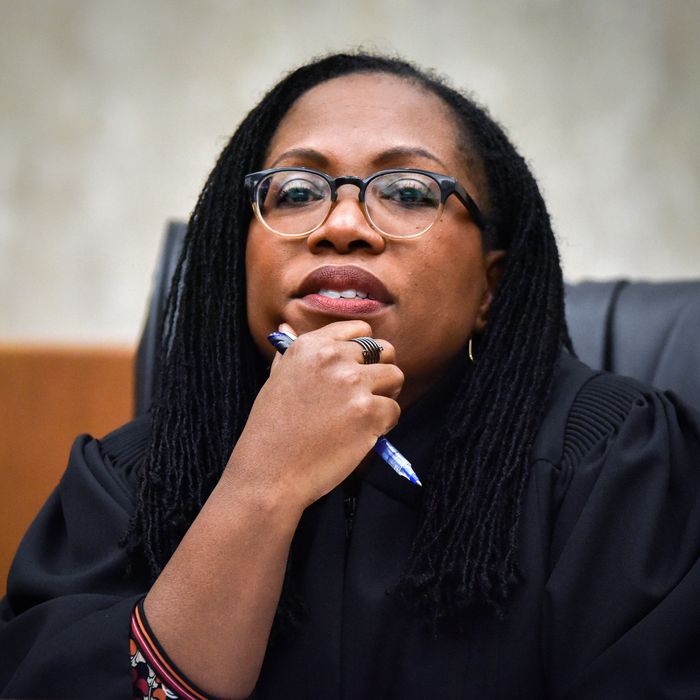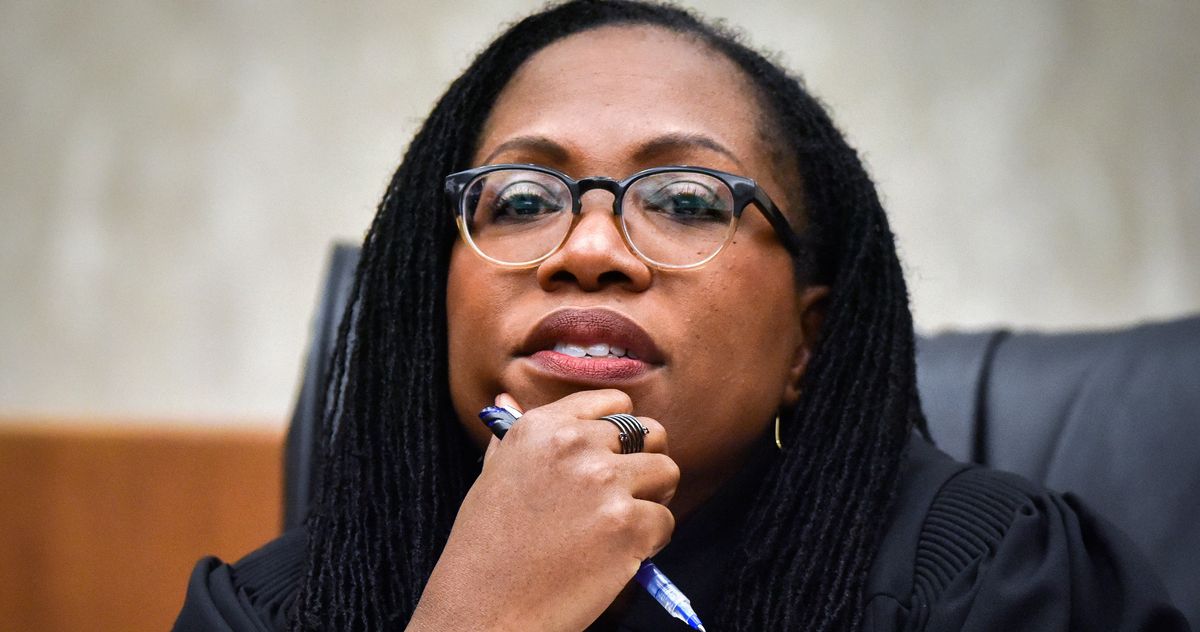
Judge Ketanji Brown Jackson.
Photo: The Washington Post/The Washington Post via Getty Images
Last month, Justice Stephen Breyer announced his impending retirement from the Supreme Court. Maybe he had been listening to progressives? Who wanted him to step down so that President Joe Biden can nominate a successor rather than whatever conservative president could be serving at the time of Breyer’s eventual death, if he were to stay on the bench? Anyway, the decision marked an about-face from his position on the matter even as recently as this summer, and we will take it. On Friday, President Biden nominated Ketanji Brown Jackson, a judge on the U.S. Court of Appeals D.C. Circuit, to fill Breyer’s seat, confirming weeks of speculation about her candidacy.
“For too long, our government, our courts haven’t looked like America,” Biden said in his announcement. “I believe it’s time that we have a court reflects the full talents and greatness of our nation with a nominee of extraordinary qualifications, and that we inspire all young people to believe that they can one day serve their country at the highest level.”
Jackson previously clerked for Breyer and secured her current position in June, with all 50 Democratic senators and even three Republicans affirming Biden’s appointment. Were her nomination to go through, Jackson would become the first Black woman ever to serve on the Supreme Court.
Before she landed on the appellate court (a traditional path to the Supreme Court), Jackson spent eight years as a federal district court judge. In addition to working in private law firms, she has also served as a public defender and is a double Harvard grad. (She got both her undergraduate and law degrees there.) She was vice-chair of the United States Sentencing Commission between 2010 and 2014, retroactively reducing thousands of crack-cocaine-related sentences and cutting sentences for many other types of federal drug offense. Jackson has also been involved in several high-profile Trump-era cases — she ruled that former White House counsel had to comply with Congress’s subpoena in the first impeachment hearings, and she sat on the panel that allowed the House to access Trump administration records in investigating the Capitol insurrection.
Jackson featured on President Barack Obama’s Supreme Court shortlist in 2016 and, according to NPR’s June assessment, has been a “hot prospect” for Biden’s nomination. On the campaign trail, he talked about naming a Black woman to the bench, which has historically remained overwhelmingly white and male. But while Jackson — who accepted the nomination in a phone call on Thursday night — did step onto the appeals court with a degree of bipartisan support, at least one of the Republicans who voted for her seem to be gearing up to oppose her appointment. Senator Lindsey Graham tweeted that her selection “means the radical Left has won President Biden over yet again,” and remarked that “the Harvard-Yale train to the Supreme Court continues to run unabated.”
For her part, Jackson said Friday that she was “truly humbled by the extraordinary honor of this nomination,” and credited Constance Baker Motley — the first Black woman appointed to a federal court — as “true inspiration.”
“I can only hope that my life and career, my love of this country and the Constitution,” she said, “and my commitment to upholding the rule of law and the sacred principles upon which this great nation was founded will inspire future generations of Americans.”
This article has been updated.
Stay in touch.
Get the Cut newsletter delivered daily
Vox Media, LLC Terms and Privacy Notice
By submitting your email, you agree to our Terms and Privacy Notice and to receive email correspondence from us.


